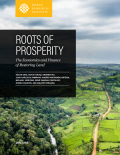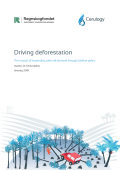
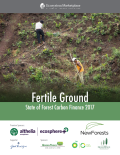
The report Fertile Ground: State of Forest Carbon Finance 2017 details innovative mechanisms that channel finance towards enhancing the ability of forests and other natural land areas to absorb carbon from the atmosphere. In particular, it shares the latest data and trends for three forest carbon finance mechanisms: voluntary carbon markets, compliance carbon markets, and payments for Reducing Emissions from Deforestation and Forest Degradation (REDD+) programs. For each of these mechanisms, the report covers the volumes and values of offsets transacted, key market actors, and relevant trends and policy developments. It also includes information about the projects that receive these payments, how they operate, and how they are influencing the communities and ecosystems around them.
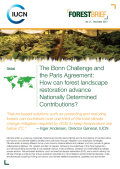
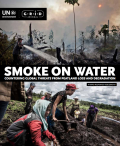
Smoke on Water – Countering Global Threats From Peatland Loss and Degradation is a Rapid Response Assessment that looks at peatland location, extent, threats and the policies to manage and protect them. The goal of this rapid response assessment, carried out on behalf of UN Environment and based on the efforts of more than 30 contributors, is to raise awareness about the importance of the world's peatlands and to encourage immediate action to preserve them.
The assessment supports the Global Peatlands Initiative and is based on existing data and information. Its main messages are:
1. Peatlands are important to human societies around the world. They contribute signicantly to climate change mitigation and adaptation through carbon sequestration and storage, biodiversity conservation, water regime and quality regulation, and the provision of other ecosystem services that support livelihoods.
2. Immediate action is required to prevent further peatland degradation and the serious environmental, economic and social repercussions it entails.
